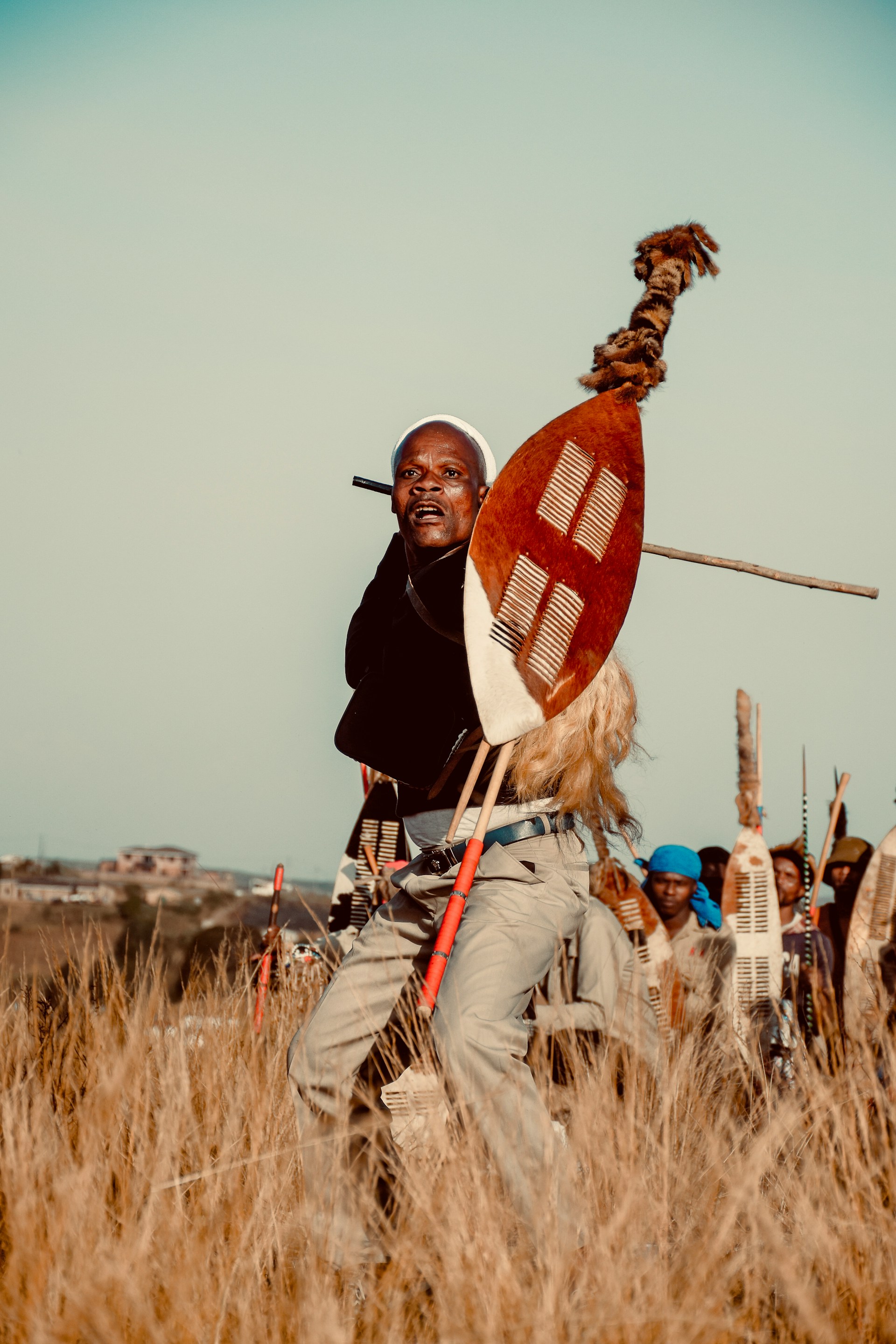A fearless tactician. A political mastermind. A legend who turned warriors into a nation. 254

In the early 19th century, while Europe was charting colonial paths across Africa, one man was redrawing the future from within — not with maps, but with spears, strategy, and unshakable presence. That man was Shaka Zulu.
To call Shaka a warrior king is only part of the truth. He was a disruptor, a reformer, and a force of nature. His story isn’t just a tale of conquest — it’s a blueprint for power, purpose, and how one man’s vision can transform fragmented tribes into an empire that echoes through history.
From Exile to Empire
Shaka’s journey began not in glory, but rejection. Born out of wedlock and exiled with his mother, Shaka knew the sting of shame. But instead of breaking him, exile became his forge. It shaped a boy into a warrior and a warrior into a legend.
He trained under the Mthethwa chief Dingiswayo, where his raw strength and strategic mind caught fire. But when Dingiswayo died, Shaka didn’t just take command — he rewrote the Zulu identity entirely.
“Shaka didn't inherit power. He built it, sharpened it — and made the world watch.”
The Spear and the Shield: Revolutionizing Warfare
Shaka’s military reforms were as brilliant as they were brutal. He introduced the iklwa, a short stabbing spear that forced close combat and rendered traditional long-range weapons obsolete. His warriors carried large cowhide shields and moved in tight, deadly formations — most famously, the "buffalo horns" attack formation.
This wasn’t just a new tactic. It was psychological warfare. His enemies weren’t just outmatched. They were overwhelmed.
He banned sandals to harden his warriors' feet, drilled them relentlessly, and demanded loyalty through discipline. What he created wasn’t an army — it was a brotherhood of unstoppable force.
Unifier of Nations
Through strategy, intimidation, and diplomacy, Shaka absorbed dozens of tribes into what became the Zulu Kingdom. His reign brought a form of unity never before seen in southern Africa.
But that unity came at a cost. His rule was marked by strict control, and dissent was often met with swift and violent consequence. The very methods that built his kingdom also bred enemies — including within his own family.
The Legacy That Would Not Die
Shaka was assassinated in 1828 by his half-brothers — a betrayal from within. But death didn’t silence him.
The military system he built outlived him. His leadership style became a study in both the potential and the peril of power. And his influence still pulses in South Africa’s cultural memory, art, film, and identity.
 Shaka Zulu's presence still looms large — a symbol of strength, unity, and revolutionary vision.
Shaka Zulu's presence still looms large — a symbol of strength, unity, and revolutionary vision.
Shaka in the Modern Mind
In today’s Africa, where borders were drawn by colonizers and nationhood is still evolving, Shaka Zulu remains a symbol of what could’ve been — a homegrown empire, led by indigenous power, rooted in cultural strength and vision.
He reminds us that leadership is not about comfort, but courage. Not about applause, but impact. Shaka didn’t aim to be liked. He aimed to last.
Final Word: Warrior. Visionary. Icon.
Shaka Zulu didn’t just lead people. He awakened them. He didn’t just fight battles. He engineered a future.
His name now lives between myth and memory, but his influence is real. In every conversation about power, strategy, African history, and resilience — Shaka Zulu is still in the room.
💡 Want more powerful stories of leadership and African legacy? Visit mkpatu.com for exclusive insights, essays, and cultural explorations. · For minds shaped by history — and building the future.
Was this post helpful?
Comments (0)
No comments yet. Be the first to comment!
Leave a Comment
Related Topics

Why Do We Wear Wedding Rings? The Ancient Symbolism Behind a...
From ancient Egypt to modern vows, the wedding ring is more than metal — it’s a...

The Psychological Shift From Earner to Owner
True wealth begins when your mindset evolves — from working for money to making...
.jpg)
Think You Can Escape? Enter the Maze in Astray – A Mind-Bend...
Never before have players truly faced a maze that feels alive — not a static puz...

How Electric Vehicles (EVs) Really Work
A Simple, Honest Guide to What’s Under the Hood (Even If There’s No Engine There...

What Age Should a Girl Start Dating?
A Question That Touches Culture, Safety, Love, and Responsibility









